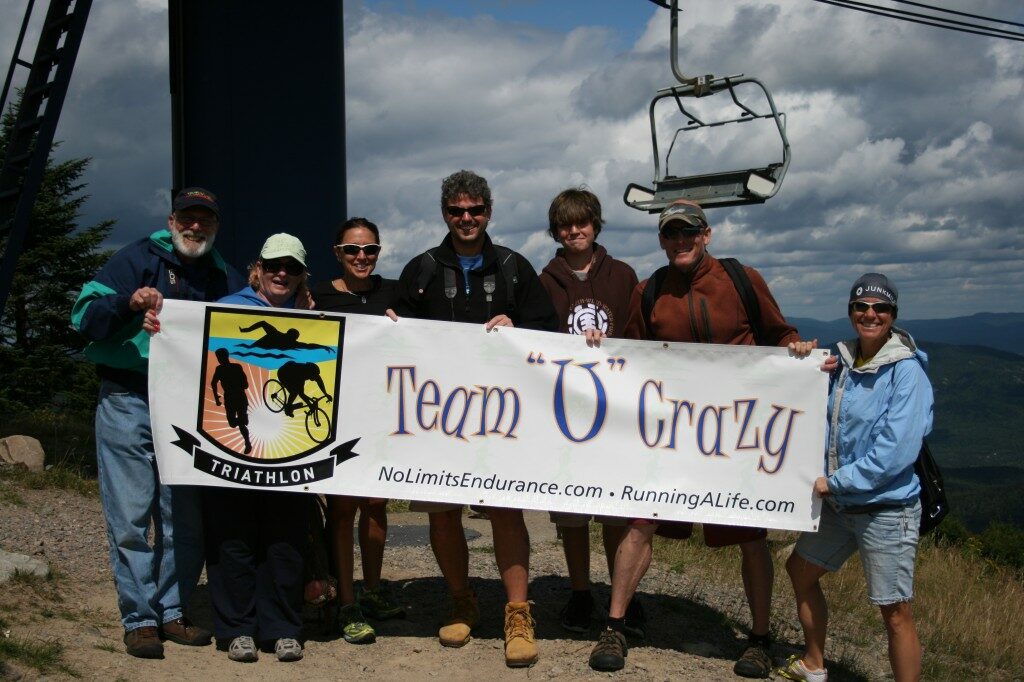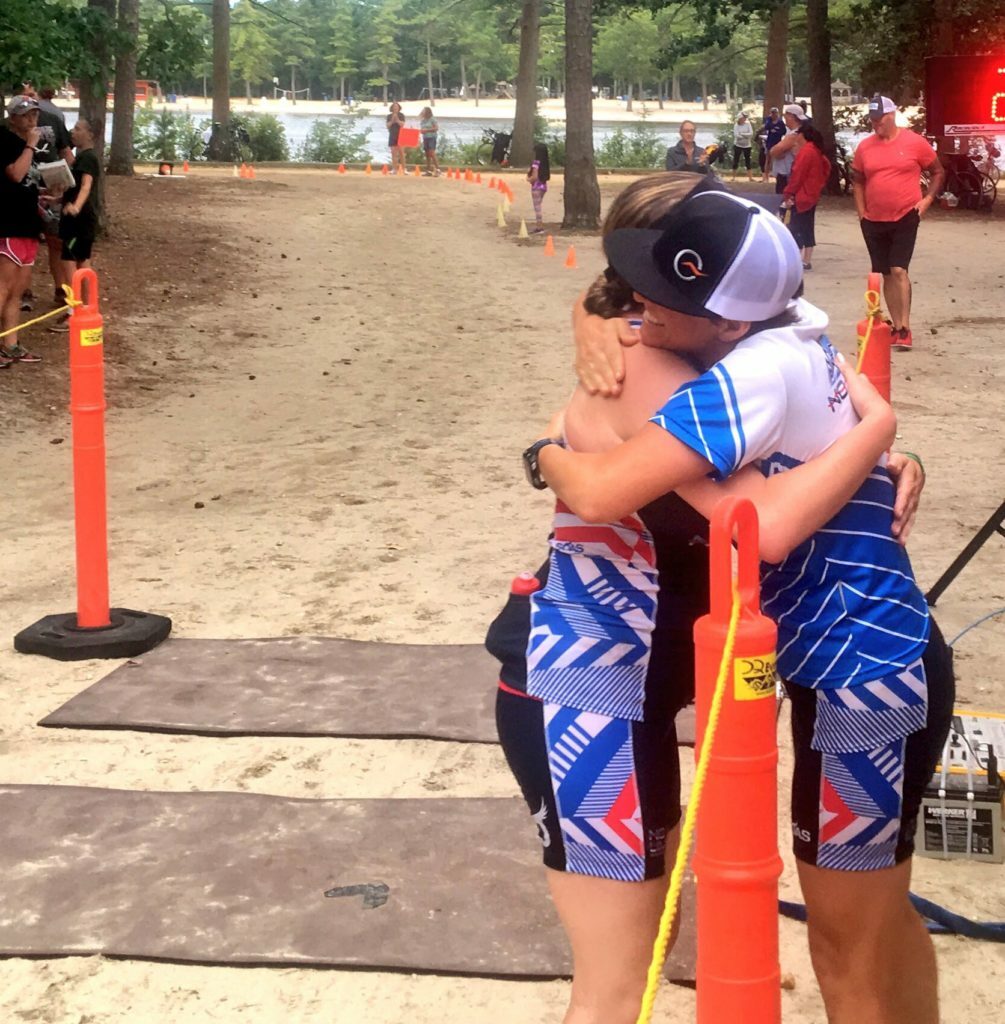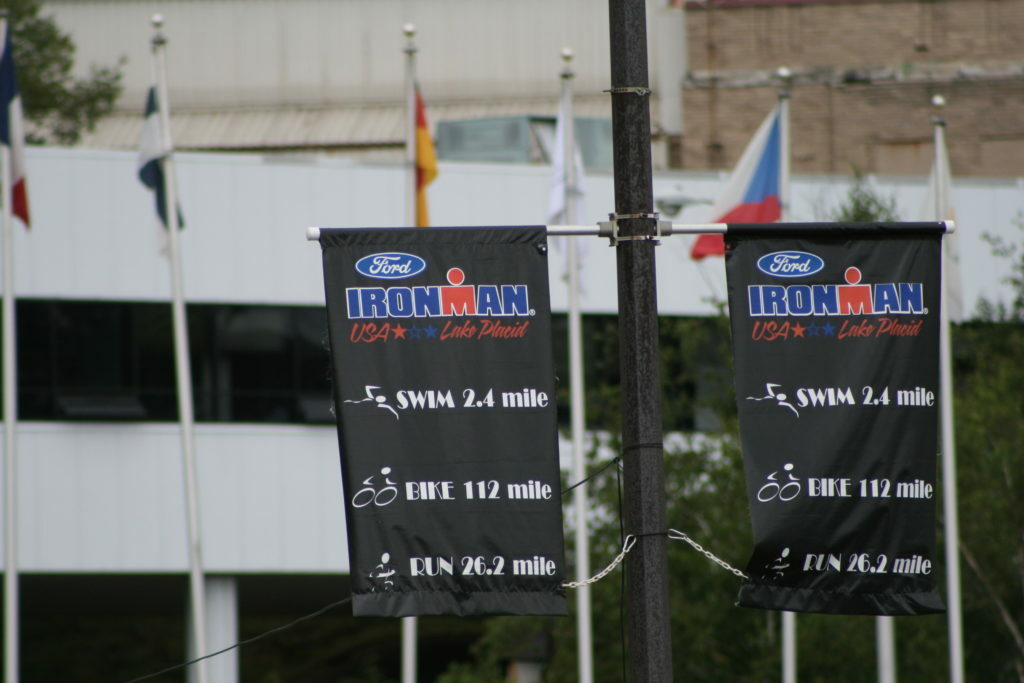There is a progression of goals in triathlon that usually revolves around two questions:
- How fast can I go?
- How far can I go?
Since we’ve covered the first question in a previous post, let’s think about the second question, specifically as it relates to an ironman triathlon.
If you are a triathlete, this question is very likely a sign that you are toying around with an iron-distance triathlon. An Ironman requires an investment of resources – time, money, patience, commitment, sacrifice, support. If your goal is to go the distance, here are some things to consider.
1. Lifestyle: Time, Support and Sacrifice
Questions associated with your lifestyle are the most important consideration before you commit to an Ironman.
Do you have the time to commit to training for your first Ironman triathlon?
Training for an Ironman is a time-consuming process. There are many estimates about how many hours it takes to train, but some of these are very far overblown – especially if you are training for your first one.
You should expect to train on average about 13-15 hours/week, with some overload, peak weeks. That’s right – you don’t need to train 20+ hours a week every week. But, you do need to commit a still sizable chunk of time to the effort. 13-15 hours is a part-time job! (Note: Competitive athletes will train more. So, volume is dependent on your goals.)
Additionally, it’s important to realize that the commitment includes more than just the time directly spent in training. There will be days that you will be absolutely too tired to do anything other than rest. You may wonder if doing the dishes is really a necessary use of your time. You will spend silly amounts of time doing laundry–or watching it pile up.
You may find yourself falling asleep while standing up at family events. You may forget what your friends look like because the time available for socializing will become limited as the training volume increases. You will become very accustomed to saying, “I’m sorry, I can’t. I have a long ride on Saturday.”
You will begin to accept that there is nothing wrong with going to bed a 8:30 p.m. And, despite going to bed at 8:30 p.m., you will have days where you think your alarm clock is conspiring against you. How could it possibly be time to get up already? 5:00 a.m. starts (or earlier) are common for Ironman training.
Do you have family support for your first Ironman triathlon?
Given the time you will commit to training and the ancillary activities, it is important to think about how this will affect your family, and the extent to which they will be able to support this endeavor. After all, it is equivalent to a part-time job–except you are paying to do it, instead of getting paid.
You will need to learn to be creative in making the time for your family and your training. But, realize, it can be done. Many people complete Ironman with partners, spouses, children, and sick loved ones. You just want to make sure they are on board for it.

Are you willing to make these sacrifices in your lifestyle to achieve the goal?
Only you know the answer to this question.
You should spend some time considering how much you are willing to give up to reach your goal. While your life will not make a 180-degree change; it will change. (A few years back, I wrote a post about some of these changes on my personal blog: Life’s a Little Different Now.)
If you read through the previous paragraphs and thought, “Oh heck no!” Then, this might not be the right time to devote to your first Ironman triathlon. I’m only going over the basics here :).
2. Athletic history
Is it possible to complete an Ironman without any experience in either triathlon or other endurance sport? Yes. Do we advise it? No.
Attempts at longer distances are likely to be most successful (and enjoyable) if you have a history in some type of endurance-based sport. Training for an Ironman takes a toll on your body, and having the athletic history to support this training is important to avoid injury.
Furthermore, having the experience of what it takes to push through tough moments is an important part of getting to the finish line. Mental will is a key component of race day success.
Before committing to your first Ironman triathlon, we recommend completing 2-3 seasons of triathlon, which includes a progression from sprint and olympic triathlons to half-iron distance events. However, athletes with single-sport endurance experience may be able to advance more quickly than those who don’t have experience with longer-distance events. There is not a one-size-fits all approach here.
Ultimately, each individual needs to consider the entirety of their athletic history to consider if they are ready for the physical challenges of training and race day. Truthfully, race day is NOT the main challenge in the Ironman journey. The training is really what makes an Ironman challenging–and worth doing.

3. Coaching Support
As you approach your first Ironman triathlon, you will want to consider whether you will self-coach or hire a coach. You don’t need to hire a coach to complete your first Ironman. But you do need a training plan. An unstructured approach to completing an Ironman is not the recipe for success. As the saying goes, failing to plan is planning to fail.
There are quite a few generic free plans available online, and for a few dollars, you can buy a book that includes Ironman training tips and plans. These plans are quite general, so it may require a bit of research and effort to adapt them to your life. If you’d like some suggestions for books we recommend, feel free to contact us.
If self-coaching is not the approach you want to take, then you will want to hire a coach that is right for you. You should do your research, and create a short list of coaches. Interview them. Make sure they have the experience and a personality that is right for you.
When you hire a coach, you are hiring someone for their knowledge, expertise, and experience. You are hiring someone who will hold you accountable, and who will be able to adjust your training based on your progress, your lifestyle, and your goals. It’s not just about the plan. (Read more: How does coaching work?)
4.Costs
Ironman is expensive, and you can spend as much as you want.
The race fees alone (around $700+ for “official” Ironman events) are staggering. Even the non-WTC-branded races cost around $400-$600.
If you are balking at the race fees, they are only the start. There are the costs of training, such as pool/gym fees, and gear purchases and upgrades. You will also have increased costs for purchasing sports nutrition products, such as gels and drinks. Your weekly food bill may also see an increase, as you consume more food to fuel your longer efforts.
You’ll have costs associated with travel and lodging for the race. Most Ironman races require that you pick up your packet at least two days before the race, so you are locked in to at least 4 days of lodging. Some places also require 4-night minimum stays. We recommend that you get in early for a race to recover from the travel and to acclimate yourself to the race site – especially if it is hotter or colder than you are used to, or if it is in a different time zone.
Not all of these items are fixed costs, and you can make choices to help keep the overall budget in check. For example, you need a bike, but you don’t need to have the latest-edition tri-bike with race wheels. You need a wetsuit, but it doesn’t need to be $1500. Look for deals, and buy used equipment whenever you can. Even so, there are plenty of hidden costs.
Is now the right time?
There are many factors that go into this decision to train for and complete an Ironman. While the challenges and sacrifices may be considerable, when you cross that finish line, you will feel like every moment was worth it to hear the announcer say: “You. Are. An. Ironman.”
The training and the race are a triumph of the human spirit, and a display of the depth of human determination. It will push your limits, and show you how amazing the human body and mind can be.
Need help or have questions? Contact us!

